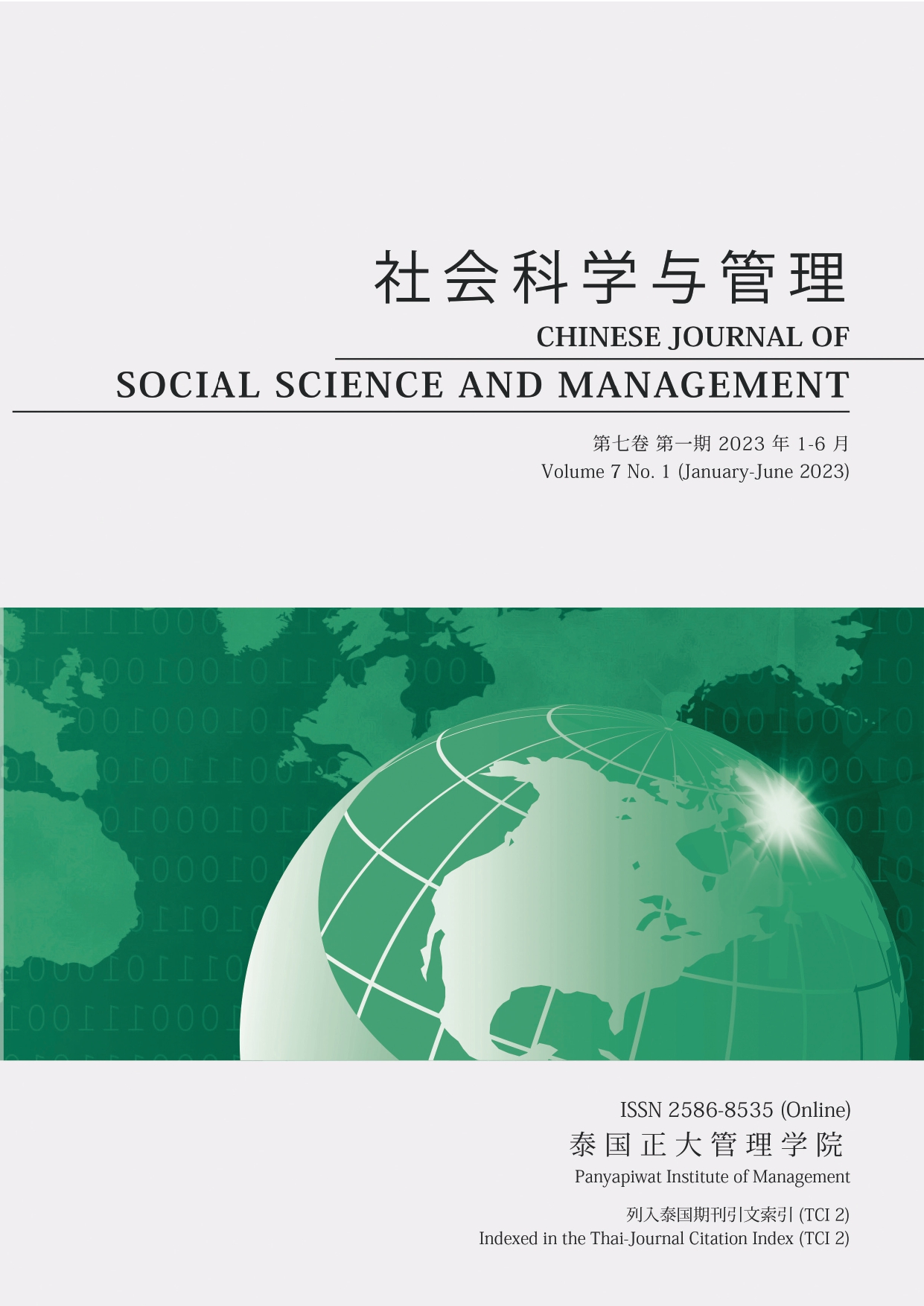THE INFLUENCE OF ENTREPRENEURIAL ATMOSPHERE ON ENTREPRENEURIAL SELF-EFFICACY OF CHINESE COLLEGE STUDENTS WITH ENTREPRENEURIAL LEARNING AS INTERMEDIARY
Main Article Content
Abstract
Under the influence of the atmosphere of “mass entrepreneurship and innovation”in China, entrepreneurship education in Chinese colleges and universities continues to advance. As potential entrepreneurs, the failure rate of college students is high, and their lack of entrepreneurial self-efficacy is a key factor. Based on the theory of self-efficacy, this paper combed the entrepreneurial self-efficacy of college students and its influencing factors. From the entrepreneurship atmosphere at colleges and universities, entrepreneurship and entrepreneurial self-efficacy in three aspects, more than four hundred undergraduate students at 10 eastern and western colleges and universities in China underwent a questionnaire survey analysis through quantitative analysis. The aim was to clarify the relationship between entrepreneurial atmosphere influences on students’ entrepreneurial self-efficacy. It explored formal outside-the-classroom“teaching”as a way to identify to what extent the students’“learning”could enhance their entrepreneurialself-efficacy. The study found that the entrepreneurial atmosphere at colleges and universities had a significantly positive impact on students’ entrepreneurial self-efficacy. Entrepreneurial learning played a partial mediating role between the entrepreneurial atmosphere and entrepreneurial self-efficacy. The overall perception of the entrepreneurial atmosphere at colleges and universities among the students could affect their entrepreneurial learning and the improvement of entrepreneurial self-efficacy. Entrepreneurial self-efficacy involves entrepreneurs in a business situation who are faced with various risks and uncertainty but have confidence in the development of entrepreneurial activities. It plays an important role in the process of business-pioneering education at colleges and universities. More outlooks for a multi-level entrepreneurial atmosphere should be built to motivate students through a variety of entrepreneurial learning, which will promote the growth of entrepreneurial self-efficacy.
Article Details

This work is licensed under a Creative Commons Attribution-NonCommercial-NoDerivatives 4.0 International License.
Chinese Journal of Social Science and Management Editorial Division
The Office of Research and Development, Panyapiwat Institute of Management
85/1 Moo 2, Chaengwattana Rd., Bang Talat, Pakkred, Nonthaburi 11120, Thailand
Tel. 02 855 01048 E-mail: cjssm@pim.ac.th
References
Bandura, A. (1977). Self-efcacy: Toward a unifying theory of behavioral change. Psychological Review, 84, 191-215.
Drucker, P. (1985). Innovation and entrepreneurship: Practice and principles. Harper & Row.
Hamilton, E. (2011). Entrepreneurial learning in family business. Journal of Small Business and Enterprise Development, 18(1), 8-26.
Li, A. G., & Zeng, X. J. (2018). How do growth experience and social support influence the entrepreneurial motivation of college students?--The integration function based on entrepreneurial self-efcacy. Foreign Economics and Management, 40(4), 30-42. [in Chinese]
Li, J. W. (2013). Research on the action mechanism of entrepreneurship education on college students’ entrepreneurial intention [Doctoral dissertation]. Nankai University. [in Chinese]
Minniti, M., & Bygrave, W. (2001). A dynamic model of entrepreneurial learning. Entrepreneurship Theory and Practice, 25(3), 5-15.
Politis, D. (2005). The process of entrepreneurial learning: A conceptual framework. Entrepreneurship Theory and Practice, 29(4), 399-424.
Sarasvathy, S. D. (2003). Entrepreneurship as a science of the artifcial. Journal of Economic Psychology, 24(2), 203-221.
Shan, B. A., Cai, L., Lu, X. F., & Liu, Z. (2014). The connotation, dimension and measurement of entrepreneurial learning. Studies in Science of Science, 32(12), 1867-1875. [in Chinese]
Qi, W. H., Zhang, X. E., & Li, Z. H. (2017). The influence of entrepreneurs’experience on the identifcation of entrepreneurial opportunities. Science and Technology Progress and Countermeasures, (15), 136-140. [in Chinese]
Qu, J. Y., Zhang, C. Q., & Shi, Y. T. (2015). Research on the influence of network entrepreneurship education on college students’ early network entrepreneurship behavior. Science & Management, 17(6), 108-114. [in Chinese]
Xu, Z. D., Mei, Q., & Chen, T. M. (2018). Entrepreneurial knowledge and start-up business performance of college students: Multiple mediating effects of entrepreneurial learning. Industrial Engineering and Management, 23(3), 177-183. [in Chinese]
Yang, X. R. (2018). Research on the influence of entrepreneurship education and previous experience on college students’ entrepreneurial ability. Technical Economy and Management Research, (9), 36-41. [in Chinese]
Yin, M. M., & Zhang, X. Y. (2019). On the path to improve the entrepreneurial ability of Chinese college students. Scientifc Research Management, 40(10), 142-150. [in Chinese]
Zhang, X. E., Qi, Q. H., & Li, Z. H. (2017). Research on the influence mechanism of entrepreneur experience on entrepreneurial opportunity identification. Science Research, (3), 419-427. [in Chinese]


